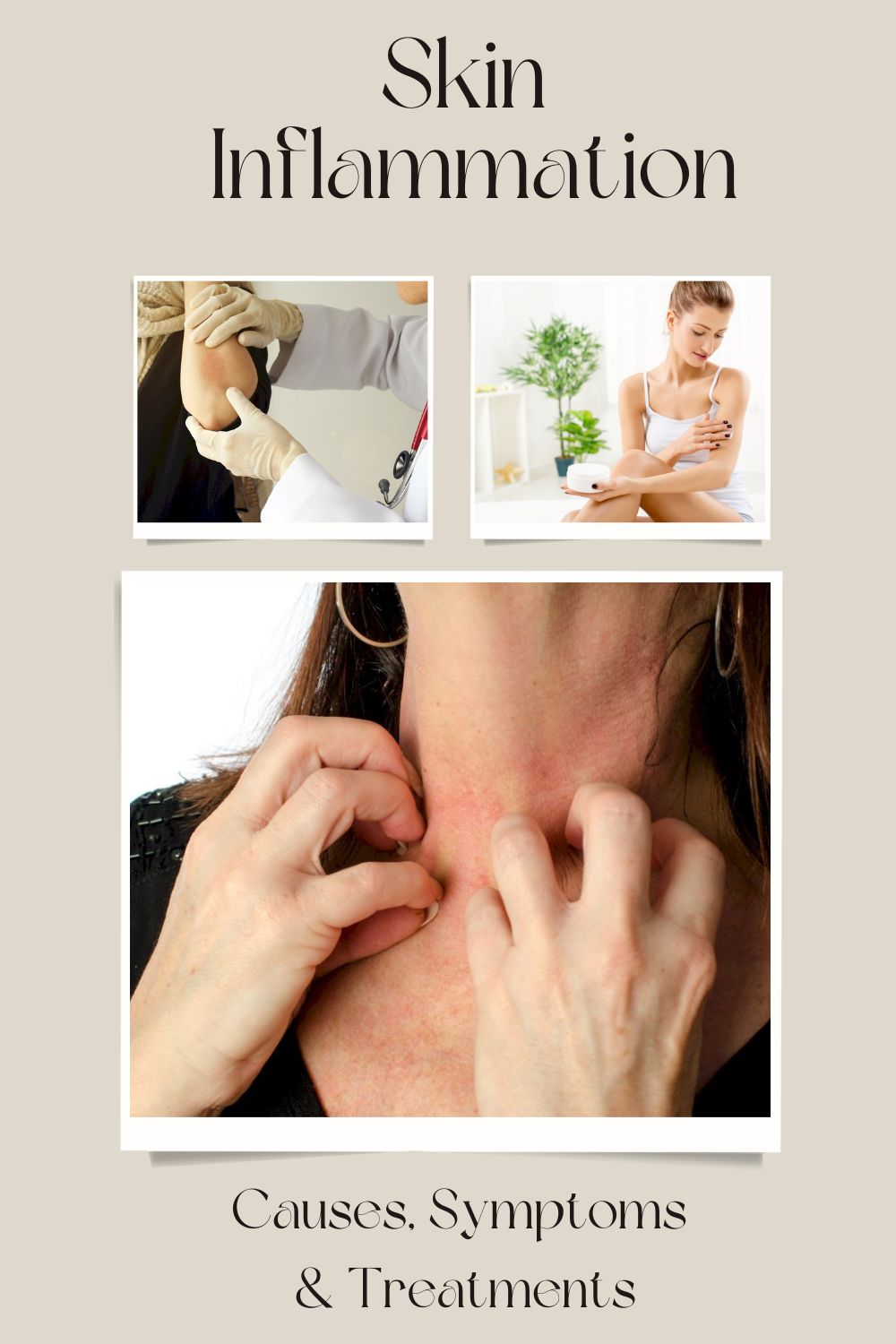Skin inflammation is a common skin condition that affects many people. It can cause redness, itchiness, and swelling of the skin, and it can sometimes be uncomfortable. Understanding what causes skin inflammation and how to treat it can help you get relief. Read on to learn more about this condition’s causes, symptoms, and treatments.

Causes of Skin Inflammation
Skin inflammation can have many different causes, including allergies or irritants. Allergens such as pollen or pet dander may cause an allergic reaction in some people, leading to skin inflammation.
Other common irritants that may lead to skin inflammation include soaps, detergents, perfumes, cosmetics, and topical medications. Sometimes, skin inflammation may also be caused by an underlying medical condition such as eczema or psoriasis.
Risk Factors
Are you dealing with an itchy, red rash and wondering what type of skin inflammation it could be? Thankfully, various common types of skin inflammation can help you identify and treat the condition. Below is a comprehensive guide to understanding the different kinds of skin inflammation and how to manage them.
Atopic Dermatitis
Atopic dermatitis, also known as eczema, is one of the most common forms of skin inflammation. It is typically characterised by redness, intense itching, and small bumps that may ooze fluid when scratched. The hands and feet and patches on the arms or legs are often affected. Atopic dermatitis usually appears in children but can continue into adulthood.
Common treatments for this condition include avoiding triggers such as soaps and detergents. In addition, using hypoallergenic lotion for eczema can also help to reduce irritation and itching. This condition can be managed with proper treatment and care.
Contact Dermatitis
Contact dermatitis occurs when the skin comes into contact with an irritant or allergen. This type of skin inflammation often looks like a rash of red bumps or blisters on the area exposed to the trigger.
Common triggers are dyes, fragrances, and other chemicals in personal care products like soaps, shampoos, and lotions. Still, they can also occur from touching latex gloves or certain plants like poison ivy or oak. Avoid exposure to potential triggers and apply topical steroids if needed to reduce discomfort associated with contact dermatitis.
Psoriasis
Psoriasis is an autoimmune disorder that causes patches of red scaly skin on various body parts, including elbows, knees, and scalp. This condition is caused by the rapid turnover of cells in the outer layer of your skin, leading to thickening and scaling over time.
Treatments for psoriasis depend on severity but may include topical creams containing steroids, tar products, or vitamin D; oral medications such as methotrexate; light therapy; biologics; or systemic drugs such as cyclosporine.
Seborrheic Dermatitis
Seborrheic dermatitis is a skin condition that causes itching, redness, and flaking of the scalp or face. It is caused by an overgrowth of yeast on the skin’s surface and is common in those with oily or combination skin. Treating seborrheic dermatitis often involves using shampoo to reduce yeast levels and topical antifungal and anti-inflammatory medications.
Symptoms
The most common symptom of skin inflammation is redness of the affected area. Itching or burning sensations in the area usually accompany this redness. In severe cases of skin inflammation, swelling may occur in addition to redness and itching/burning sensations. Some people may also experience blistering or scabbing over the affected area if left untreated for too long.
Treatments
Several treatments are available for skin inflammation, depending on its cause and severity. Mild cases can often be treated with over-the-counter antihistamines or hydrocortisone creams to reduce symptoms such as itching and redness. For more severe cases of skin inflammation caused by underlying medical conditions, prescription medications such as topical steroids may be necessary to relieve symptoms.
Additionally, moisturisers containing ceramides or hyaluronic acid can help improve the health of your skin barrier and reduce irritation from environmental factors that could lead to further episodes of skin inflammation.
Final Thoughts
Skin inflammation is a common condition that affects many people at some point. Causes range from allergies or irritants to underlying medical conditions like eczema or psoriasis. Symptoms typically include redness, itching/burning sensations, swelling (in severe cases), and blistering/scabbing (if left untreated).
Fortunately, plenty of treatments are available depending on the severity of your condition, ranging from over-the-counter antihistamines/hydrocortisone creams to prescription medications such as topical steroids if needed. So if you’re experiencing any signs of skin inflammation, don’t wait – seek treatment today!


